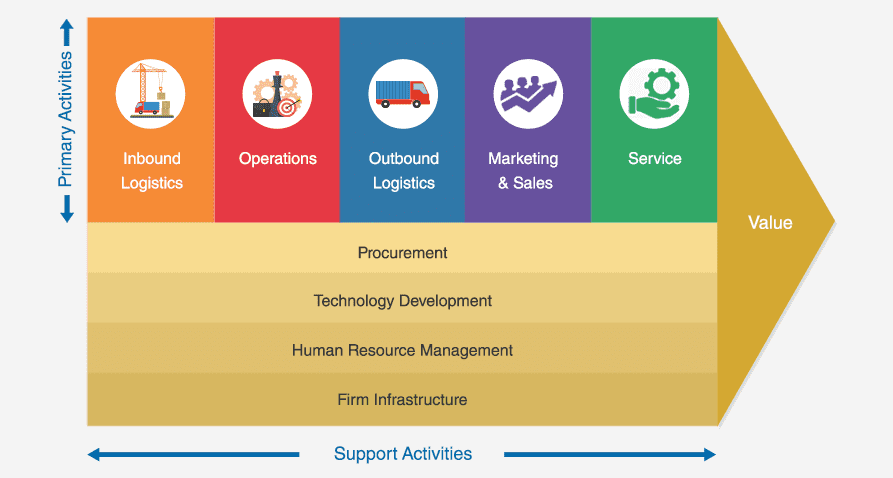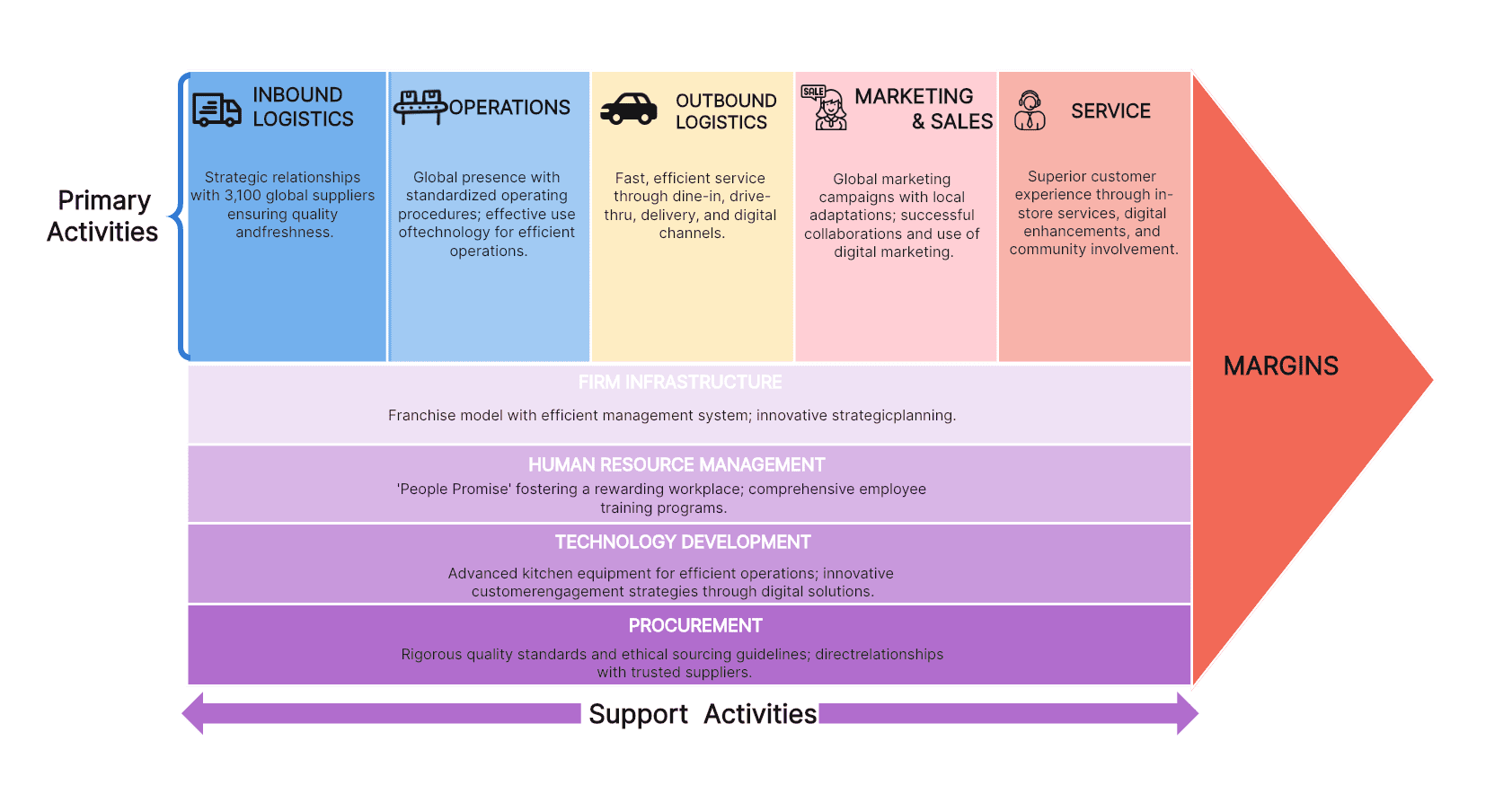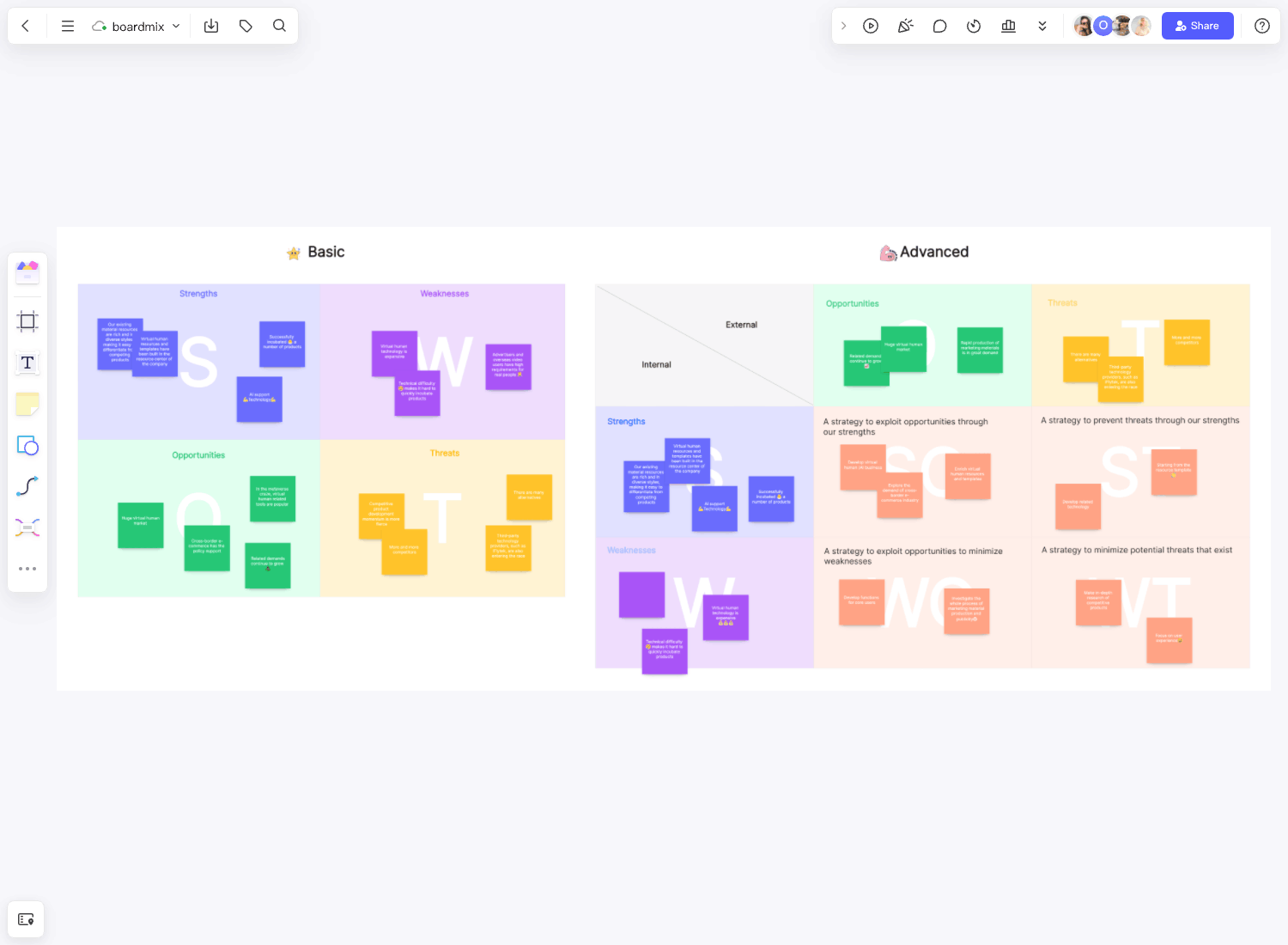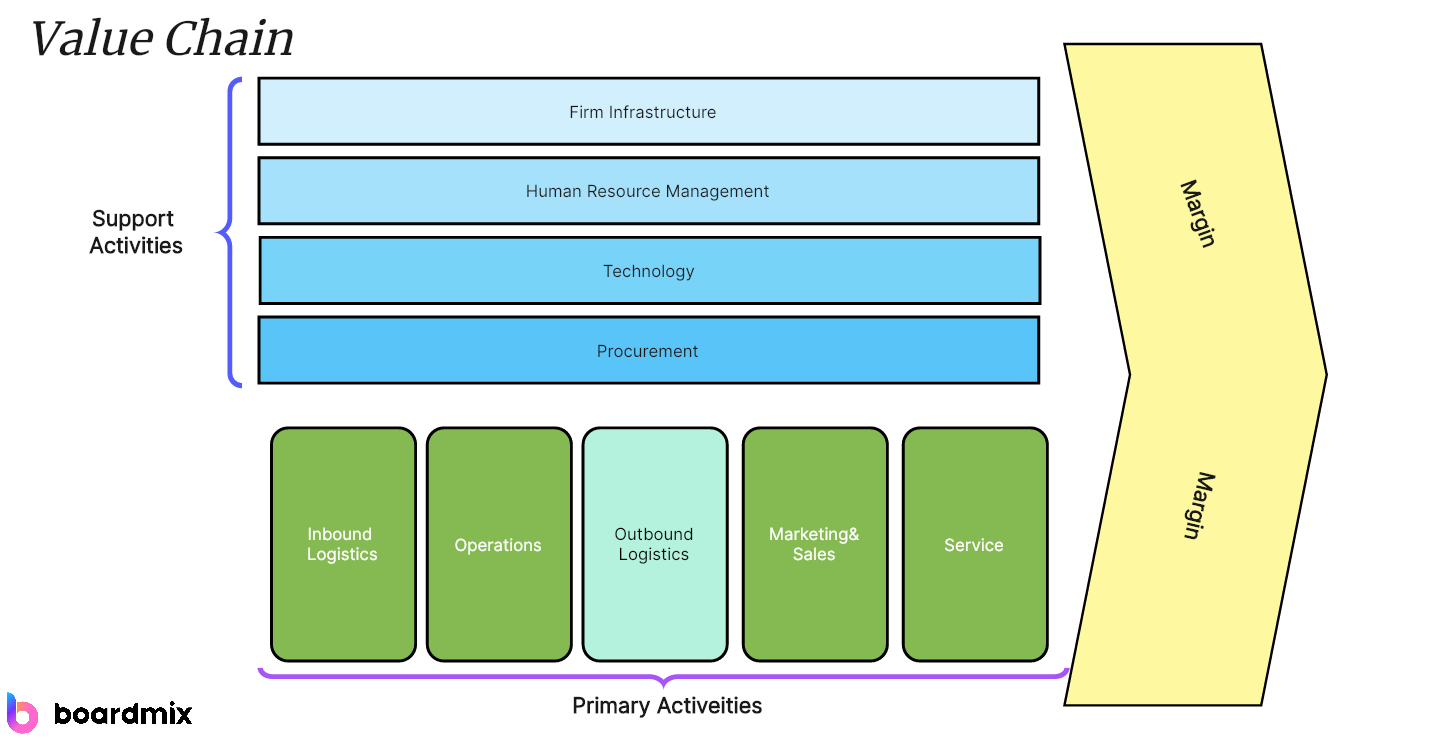In today’s dynamic and challenging business environment, it's vital to understand the value chain of an enterprise. One such compelling instance is McDonald's - the global fast-food giant. This article presents a comprehensive Value Chain Analysis of McDonald’s to better understand the secret behind its global success.

Primary Activities of McDonald’s Value Chain
Inbound Logistics
McDonald's value chain commences with inbound logistics. The company follows a complex, yet efficient, supply chain model where the crux lies in their strong partnership with the suppliers. This partnership ensures a constant supply of premium quality raw materials.
Over the years, McDonald’s has built an extensive global network of suppliers, chosen carefully for their commitment to quality as well as ethical practices. From farm-fresh lettuce to top-grade beef, every ingredient in your favorite McDonald's meal is sourced from these suppliers who align with McDonald's commitment to food safety and quality.
Besides procurement, McDonald’s has implemented state-of-the-art logistics solutions to ensure a smooth inbound flow of materials to its outlets worldwide. It has centralized distribution centers where all products are stored and dispatched as per the requirements of different outlets. The real-time tracking system enables them to keep an eye on inventory and minimize wastage.
Another critical aspect of McDonald's inbound logistics is its strict quality control measures. The products undergo rigorous quality checks before they make their way to McDonald's outlets. This meticulous attention to quality control is one of the reasons why a Big Mac tastes almost the same whether you have it in New York or Tokyo.
Moreover, McDonald's also ensures all suppliers meet stringent sustainability standards, helping the company reduce its environmental footprint while maintaining an uninterrupted supply of high-quality ingredients.
Operations
At the heart of McDonald's global success lies its masterfully orchestrated operations. The efficiency of McDonald’s operations can be encapsulated by the fact that it serves approximately 69 million customers daily in over 100 countries.
The franchise business model that McDonald's operates allows for a harmonious balance between global standardization and local adaptation. This means a Big Mac is prepared with the same standard worldwide but also allows for regional menu items catering to local tastes.
In the execution of its operations, McDonald's has implemented the innovative 'Made for You' kitchen system. Unlike traditional fast-food restaurants, McDonald's doesn't begin to cook your food until you order it. This results in fresher, hotter, and more personalized food offerings.
Integrating technology into operations is another smart move by McDonald's. It introduced digital self-order kiosks which not only shortened the customer waiting time but also improved order accuracy. In 2019, McDonald's acquired Dynamic Yield, a tech company specializing in personalization and decision logic technology. Using their technology, McDonald's now offers suggestive selling on menu items based on various parameters like time of day, weather, trending menu items, and more.
Strict adherence to cleanliness and hygiene standards are also central to McDonald’s operations. Despite the pandemic causing severe disruptions in 2020, McDonald’s managed to swiftly implement contactless service across many outlets, reassuring customers about their commitment to safety.
Another operation worth noting is the brand’s waste management system. In 2020, McDonald’s announced its plan to recycle guest packaging in all its restaurants and source all of its packaging from renewable, recycled, or certified sources by 2025.
Outbound Logistics
The outbound logistics in McDonald’s value chain is where the company truly interacts with its customers. From the moment the customer places an order, McDonald’s superior logistical strategy ensures a smooth, efficient, and satisfying experience.
The initial stage of McDonald's outbound logistics involves efficient service at the counter or through digital platforms. With nearly 80% of the company's outlets operating under franchisees, the responsibility of providing quality service falls on individual outlets. Despite this decentralization, McDonald's manages to maintain its reputation for speed. As per QSR magazine, the average service time at McDonald's drive-thru in 2020 was approximately 349.3 seconds.
One of the most significant recent developments in McDonald's outbound logistics is its emphasis on home delivery. In the U.S., McDonald’s has partnered with Uber Eats and DoorDash for food delivery. By 2019, the delivery sales reached nearly $4 billion globally, or about 4% of total sales, making it a crucial part of their business strategy.
On top of this, McDonald's has implemented 'Experience of the Future' (EOTF) across many outlets worldwide. This includes features like self-order kiosks, digital menu boards, table service, and dedicated parking spots for curbside pick-up – all designed to enhance customer experience and streamline their outbound logistics.
Moreover, the company maintains an advanced supply chain management system. Their Distribution Centers manage delivery schedules efficiently to ensure a fresh supply of products to each outlet and thus directly impact customer satisfaction.
Marketing & Sales
McDonald's marketing and sales strategies are as global and iconic as its golden arches. McDonald's spent approximately $1.54 billion on advertising in 2019 alone, highlighting its commitment to maintaining a strong market presence.
One of McDonald's most notable marketing strategies is its "Think Global, Act Local" approach. This philosophy has allowed McDonald's to strike a balance between maintaining its global brand image and catering to local cultures and tastes. A key example of this strategy is the introduction of 'McAloo Tikki' in India, 'McArabia' in the Middle East, and 'Ebi-Burger' in Japan, showcasing their commitment to understanding local tastes.
McDonald's is also known for its extensive use of partnerships and collaborations as part of its marketing strategy. It has partnered with various entities from sports organizations like the Olympics and FIFA World Cup to entertainment companies like Disney. In 2020, McDonald’s collaboration with musician Travis Scott reportedly boosted their sales by nearly 5%.
In terms of sales strategy, McDonald’s has adapted to changing consumer habits and trends. Emphasizing digital sales, McDonald's introduced 'Mobile Order & Pay' in 20,000 restaurants worldwide in 2018. The company also launched the 'My McDonald's' app providing customers with personalized offers and a loyalty program.
McDonald's also employs direct marketing through the use of billboards, television commercials, online advertising, and more. Their advertising campaigns like 'I’m Lovin' It' and 'Happy Meals' have a global reach while also connecting with local customers.
Services
The last link in McDonald’s value chain is its services, which play a critical role in cementing customer loyalty and driving repeat business. McDonald's commitment to superior customer service is evident from the moment you step into one of their restaurants or access their digital platforms.
One of the cornerstones of McDonald's services is its dedication to providing a comfortable and enjoyable dining environment. From clean and comfortable seating arrangements to free Wi-Fi in most outlets, the brand aims to create an atmosphere that invites customers to stay, enjoy, and come back.
Another key service that McDonald's offers is its fast and efficient customer service. Whether it's in-store staff or online customer service, McDonald's strives to address customer inquiries and issues promptly and satisfactorily.
The advent of technology has allowed McDonald's to innovate their service offerings further. The introduction of self-ordering kiosks has revolutionized customer experiences by providing a faster and more convenient ordering process. McDonald's mobile app offers various services like delivery tracking, customized offers, and loyalty programs.
Beyond individual customer service, McDonald’s also caters to special occasions with its party services. Services like the ‘McDonald’s Birthday Party’ offer a unique, hassle-free, and fun-filled experience for children.
McDonald's also plays an active role in community service, aligning its brand with various causes and initiatives around the world. Be it through 'Ronald McDonald House Charities' which supports critically ill children and their families, or environmental sustainability commitments, McDonald's leverages its global presence for good.
Support Activities of McDonald’s Value Chain
Support activities in McDonald's value chain play a vital role in optimizing the effectiveness of its primary activities and underpinning the global success of the brand.
Firm Infrastructure
McDonald's firm infrastructure consists of its organizational structure, strategic planning, and financial management system. McDonald's operates through a franchise model, which forms the backbone of its global presence. By 2019, almost 93% of McDonald's restaurants were owned and operated by independent franchisees.
This model is supported by an efficient management system that fosters brand consistency across all franchises. McDonald’s strategic planning includes innovative initiatives like 'Plan to Win' and 'Experience of the Future,' ensuring the brand's ongoing relevance in a competitive market.
Human Resource Management
Human resource management is crucial to McDonald's, with a strong focus on employee development and satisfaction. McDonald’s ‘People Promise’ articulates its commitment to offering an inclusive, respectful, and rewarding workplace. This includes competitive pay, flexible schedules, benefits, and growth opportunities.
In addition, McDonald's invests in comprehensive training programs through 'Hamburger University and other training tools, developing skills that improve service delivery and enhance the customer experience.
Technology Development
Technology is integral to McDonald's operations and customer engagement strategies. Whether it's through advanced kitchen equipment ensuring speedy and accurate order preparation or innovative digital solutions enhancing customer experience, technology is at the heart of McDonald’s operations.
Their tech innovations include self-ordering kiosks, mobile ordering, delivery services through partnerships with Uber Eats and DoorDash, and a personalized loyalty program through the 'My McDonald’s' app.
Procurement
Procurement in McDonald's value chain involves sourcing high-quality ingredients and packaging materials from trusted suppliers. McDonald's has established rigorous quality standards and ethical sourcing guidelines, ensuring that their procurement process aligns with its commitment to quality and sustainability.
McDonald’s direct relationship with 3,100 suppliers globally ensures a steady supply chain that minimizes disruptions and guarantees freshness and quality in every meal.
McDonald’s Value Chain Analysis Example
To get a clearer understanding of how all these activities come together to form the McDonald's value chain, here's a simplified diagram that summarizes the key aspects. It serves as a quick reference guide for business professionals interested in understanding the brand's operations. You can explore our pre-built value chain template at Boardmix for more details.

Key Takeaways
Understanding McDonald’s value chain can provide valuable insights into its successful global operations. The brand has perfectly optimized its primary and support activities, leading to high efficiency and customer satisfaction.
As an exercise, try using Boardmix's whiteboard solution to map out your own business's value chain. Our pre-built value chain template is a great starting point and can help you analyze the key steps in your operations. You can customize it to suit your business's unique needs, giving you a clear picture of where you can optimize for greater efficiency and value creation.
McDonald's success is no magic trick; it’s the result of efficient execution of its value chain activities. No wonder the brand is globally recognized for consistency, quality, and customer service.








